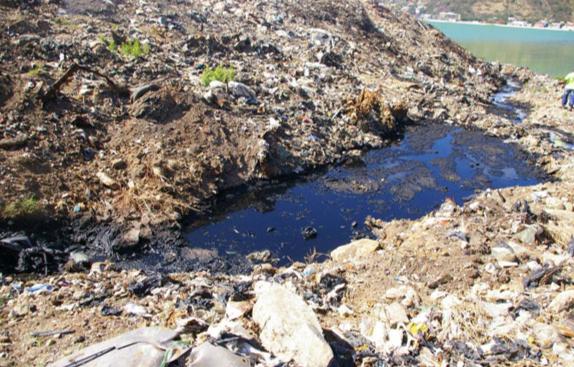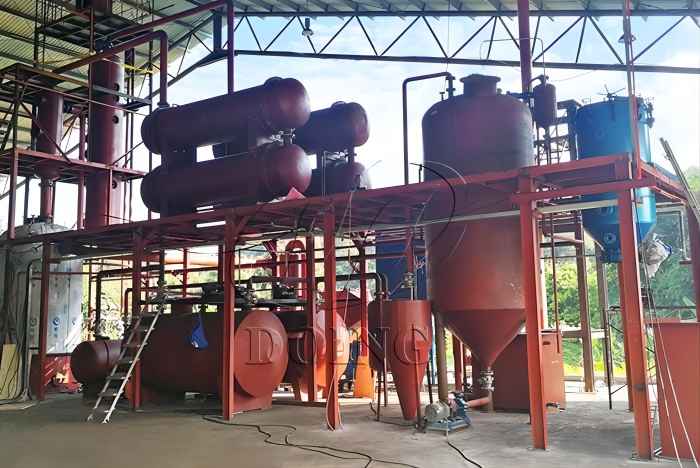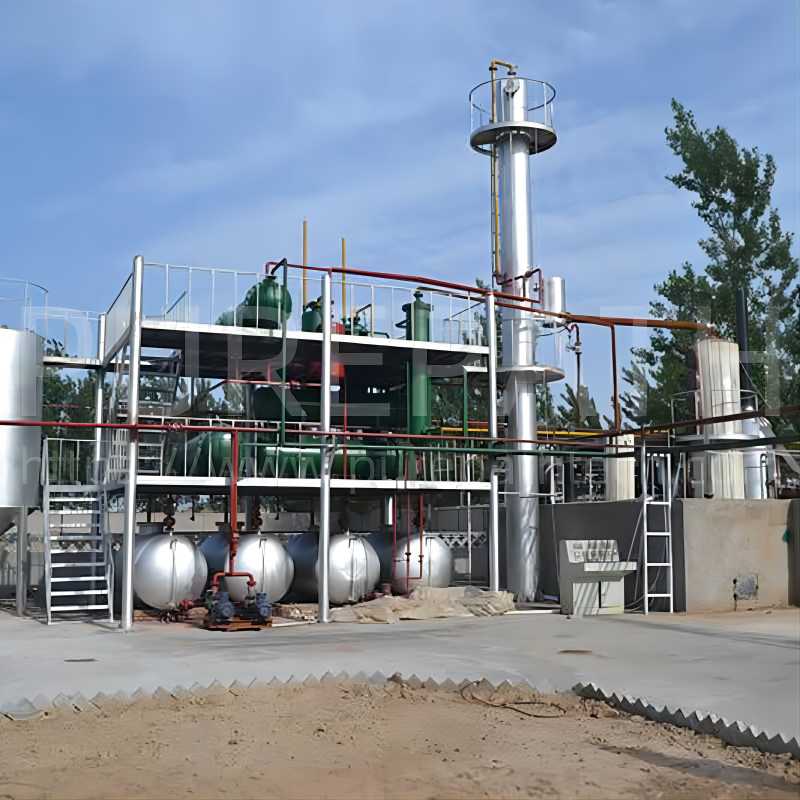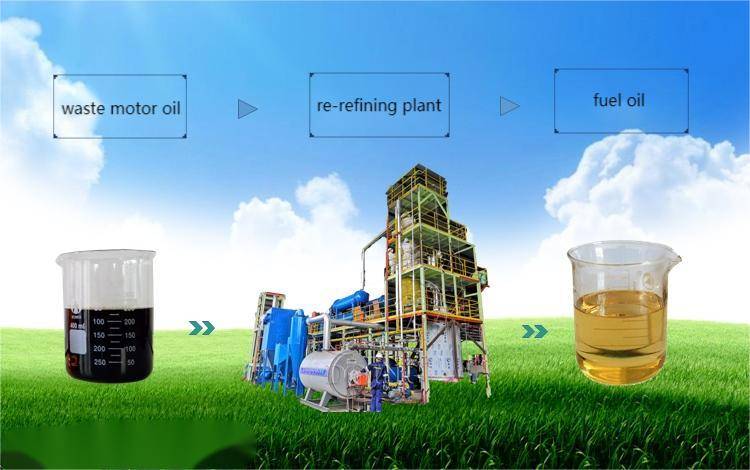Can Engine Oil Recycling Machines Fully Replace Traditional Oil Disposal Methods?
Engine oil is essential for keeping vehicles and machinery running smoothly, but disposing of used oil has long been an environmental challenge. Traditional disposal methods, such as burning or dumping, contribute to pollution and waste valuable resources. Engine oil recycling machines offer a sustainable alternative—but can they completely replace conventional disposal methods?
The Problem with Traditional Engine Oil Disposal Methods
Every year, billions of gallons of used engine oil are dumped into landfills posing significant threats to both human health and the environment. While traditional disposal methods remain prevalent today, they have increasingly been recognized as both unsustainable and hazardous.
Landfill dumping remains a common practice, yet can lead to long-term soil and groundwater contamination from toxic heavy metals and hydrocarbons that seep into the earth and eventually make their way into drinking water supplies and harm ecosystems. Incineration also releases harmful pollutants like sulfur oxides, dioxins, and particulate matter into the air that exacerbate respiratory illnesses as well as climate change.

Even worse, improper disposal—such as pouring used oil into storm drains or onto the ground—remains a persistent issue. Just one gallon of improperly disposed motor oil can contaminate up to one million gallons of water, making it undrinkable and deadly to aquatic life.
Beyond environmental damage, these methods waste resource. Used motor oil never wears out—it just gets dirty. With modern recycling technology, it can be cleaned, re-refined, and reused indefinitely, reducing the need for crude oil extraction. Yet, despite these benefits, a significant amount of used oil still ends up polluting the environment due to lack of awareness, weak regulations, or cost concerns.
The shift toward sustainable alternatives is no longer optional—it’s a necessity. Engine oil recycling machines present a viable solution, but first, outdated disposal habits must be phased out.
How Engine Oil Recycling Machines Work
Engine oil recycling machines use advanced purification technologies to transform dirty, contaminated oil into reusable lubricants or fuel. Unlike traditional disposal methods that waste this valuable resource, modern recycling systems recover up to 90% of used oil, making the process both eco-friendly and economical.
Engine Oil Recycling Process
Here is a detailed explanation of used engine oil recycling:
| Stage | Process | Technology Used | Contaminants Removed |
| 1. Pre-Filtration | Removes large solid particles and sludge | – Mesh filters – Centrifugal separators – Magnetic traps | Metal shavings, dirt, carbon deposits |
| 2. Dehydration | Eliminates water content (5-20% in used oil) | – Heating & settling tanks – Vacuum dehydration systems | Water, light fuels |
| 3. Distillation | Separates oil from remaining impurities under controlled heat/pressure | – Vacuum distillation towers – Thin-film evaporators | Sludge, oxidized compounds, additives |
| 4. Hydrotreating | Breaks down sulfur/nitrogen compounds (for high-end recycling) | – Hydrogen reactors – Catalyst beds | Sulfur, nitrogen, heavy metals |
| 5. Polishing | Final purification to meet industry standards | – Clay treatment – Microfiltration (1-5 microns) | Sludge, oxidized compounds, and additives |
Note:
- Post-recycling, oil achieves API Group I/II standards (suitable for industrial reuse).
- Modern machines recover 85-95% of the input oil volume.
- 5-15% residual sludge (often repurposed in the asphalt or cement industries).

Types of Recycling Machines
Modern recycling technology provides various options for processing used engine oil, each offering its own distinct advantages:
1. Vacuum Distillation Units
These vacuum distillation systems represent the gold standard in oil recycling; heating used oil at low pressure in order to separate impurities without harming its molecules, producing high-grade base oil that can then be refined further into new lubricants.
2. Pyrolysis Plants
These thermal decomposition units convert waste oil at high temperatures (400-500 °C) in an oxygen-free environment into fuel oil, gas, and carbon black, making it suitable for processing heavily contaminated oils.

3. Centrifugal Purification Systems
These centrifuge-style systems use high-speed rotation (up to 15,000 RPM) to quickly separate water, sludge, and metal particles from oil, ideal for auto repair shops due to their speed and efficiency.
4. Portable Recycling Units
These compact all-in-one systems combine filtration, dehydration, and purification functions into a convenient package – ideal for mobile services that need on-site processing of their waste streams.
5. Chemical Reclamation Systems
Utilizing specialty solvents and additives, oil restoration uses environmentally sustainable alternatives to disposal. Commonly employed as a final polishing step at large-scale re-refineries. Each technology caters to its individual user, from small operations to industrial refineries,s offering sustainable alternatives to oil disposal.
Advantages of Oil Recycling Machines Over Traditional Methods
1. Environmental Protection
Unlike burning or dumping used oil, which pollutes air, soil, and water, recycling machines eliminate hazardous waste. Advanced filtration and distillation remove contaminants, preventing:
- Groundwater contamination (1 liter of used oil can pollute 1 million liters of water)
- Toxic emissions (no burning = no heavy metals or sulfur oxides released)
- Landfill overload (recycling keeps oil out of waste streams)
2. Cost Savings & Profit Potential
Recycling isn’t just eco-friendly—it’s economically smarter than disposal:
- Refined oil costs 50-70% less than virgin oil
- Avoid disposal fees (landfill/incineration costs 0.50–5 per gallon)
- Sell recycled oil as lubricant or fuel, creating new revenue
3. Regulatory Compliance & Future-Proofing
Strict global laws (EPA, EU Waste Framework Directive) increasingly ban traditional disposal. Recycling machines help businesses:
- Avoid fines for illegal dumping/burning
- Meet sustainability mandates (e.g., corporate ESG goals)
- Prepare for stricter future regulations as governments push circular economies
Bottom Line: Recycling machines transform oil from a costly waste into a valuable resource, saving money, reducing liability, and protecting the planet.
Can Recycling Machines Fully Replace Traditional Disposal?
While oil recycling machines offer a sustainable and efficient alternative to traditional disposal methods, several factors determine whether they can completely replace them.
On the positive side, modern recycling technology has advanced to the point where up to 90% of used oil can be recovered and reused. Governments worldwide are implementing stricter environmental regulations, pushing industries toward recycling. Businesses also benefit from cost savings, as recycled oil reduces the need for expensive virgin oil. In regions with strong recycling infrastructure, traditional disposal methods are already becoming obsolete

But there are still challenges associated with recycling oil: high-end recycling machines require significant initial investments that may make them out of reach for smaller workshops or developing regions, while severe contamination often necessitates special treatment or disposal procedures. Furthermore, certain areas lack collection networks and processing facilities needed for full-scale recycling operations.
As technology improves and costs decrease, recycling machines may soon take the market by storm, but for now, a hybrid approach (recycling whenever possible, and regulated disposal when necessary) remains the most viable approach. Innovation and policy support must continue for oil recycling to become the universal standard.
Final Thought
Engine oil recycling machines are revolutionizing waste management, providing an environmentally friendly alternative to traditional disposal methods. Though not fully replacing their predecessors yet, technological developments and an increase in environmental awareness are pushing industries toward full-scale adoption of this solution.
Oil recycling isn’t just eco-friendly; it can also save businesses and the planet money in terms of both its economic benefits and environmental footprint.







